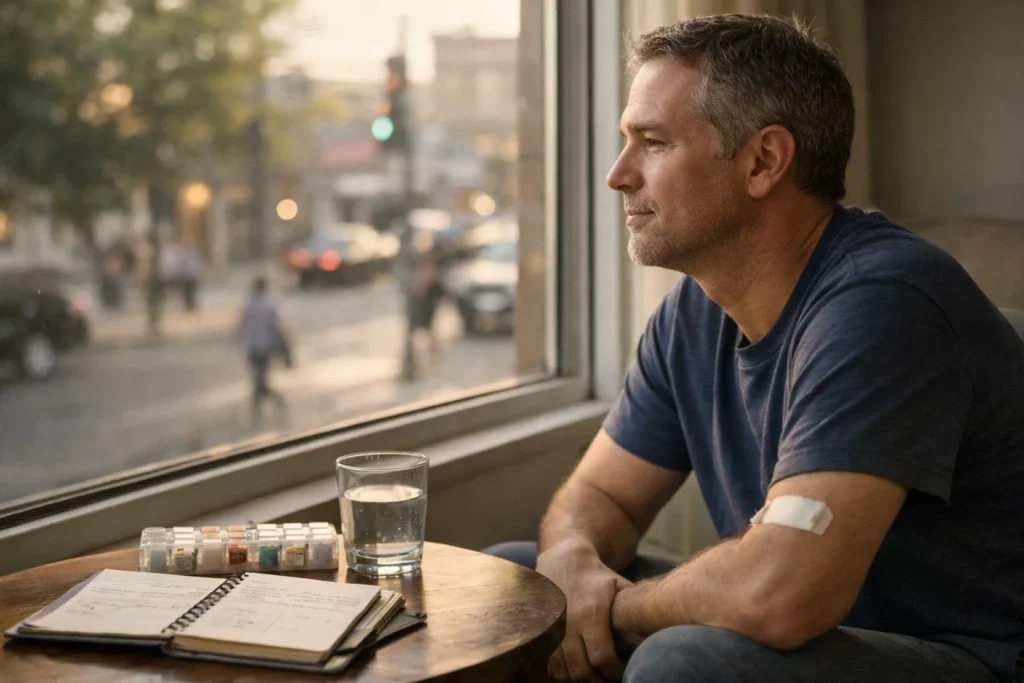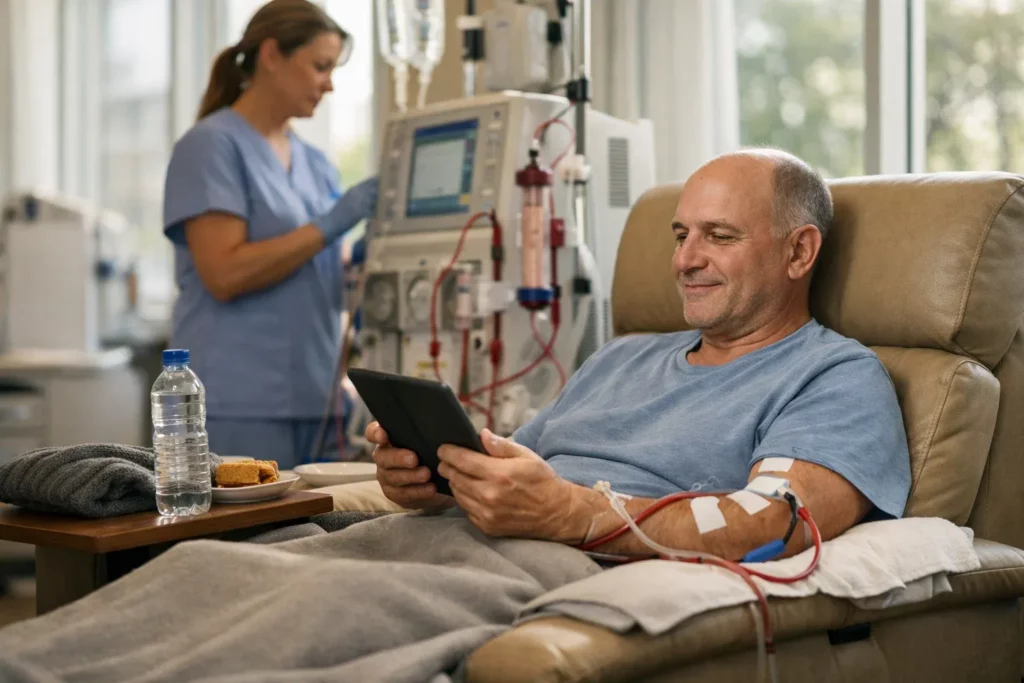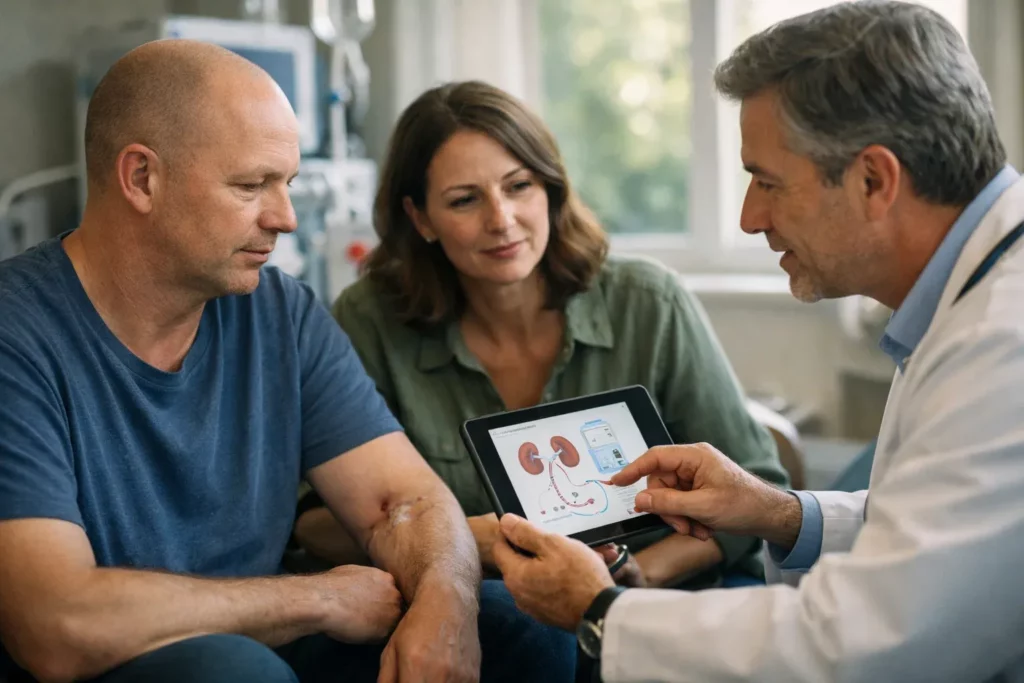At ANC, we’re always inspired by the resilience of our patients. This month, we were honored to sit down and interview Peter, a kidney transplant recipient and patient at ANC whose journey highlights the importance of early detection, treatment education, and patient advocacy. In this week’s blog, we’ll follow Peter’s kidney journey from diagnosis to transplant and explore how taking an active role in your care can lead to life-changing outcomes.
A Diagnosis That Came Without Warning
Peter was just 34 years old when he first discovered he had kidney disease. Like many patients, he didn’t experience symptoms and considered himself relatively healthy. It wasn’t until he and his wife decided to schedule routine checkups that the condition surfaced. While his wife’s labs came back normal, Peter’s prompted a follow-up from his physician, and eventually, a referral to a nephrologist.
The initial shock and fear were hard to process. “I asked the doctor if I was dying. He said no, it’s not life-threatening. But it is life-changing.” That message stayed with him throughout his entire journey.
Living With Kidney Disease & Making Informed Choices
After his diagnosis, Peter did what he could to manage the inflammation caused by his kidney disease through treatment plans and prescribed medications from his care team. Over time, however, his kidney function continued to decline. Once his GFR (Glomerular Filtration Rate) dropped below 10, his care team made the recommendation of dialysis.
At the start, Peter was introduced to both hemodialysis and peritoneal dialysis, weighing the pros and cons of each. After careful consideration and receiving thorough knowledge of both modalities, he chose peritoneal dialysis, which allowed him to continue working, spending time with family, and living independently. “I couldn’t imagine doing hemodialysis. With peritoneal, I could sleep while the machine worked. I’d wake up and just start my day.”
The Path to Transplant
As his care continued, conversations shifted from dialysis toward kidney transplant. It wasn’t an easy ask, as there are several considerations that donors face regarding kidney transplants – if they are eligible, if they can forgo plans to prepare for the procedure, if they have the right insurance, and more. So when it came to reaching out to his siblings, Peter opted to openly share what he was going through and let his family come to their own decisions. “I told them what was happening and hoped they’d ask how they could help.” After speaking to his five siblings, Peter’s older sister was a match and stepped forward to make the donation.
Following the surgery, both Peter and his sister made a full recovery and are now four months post-op. The difference in Peter’s quality of life? Night and day. “Before, I had to nap every few hours. Now, I can stay awake all day. My breathing is better. I didn’t even realize how tired I used to be.”
The Role of Patient Advocacy
Peter’s journey reflects what it means to be an advocate for your own health. At the front end of his journey, he didn’t have any context of nephrology or kidney disease. Though it took time and effort, Peter was empowered by his care team to learn about his condition rather than run from it, take necessary steps to manage it, and communicate his journey with those around him to warrant any necessary support.
For him, advocacy meant being informed, thoughtful, and honest. If you or a loved one is newly diagnosed with kidney disease, he encourages others not to panic. Rather, stay curious and remember that you’re never alone in this journey. “As my nephrologist told me, it (kidney disease) is not life-threatening nor is it ideal, but it is manageable”. For many, kidney disease doesn’t need to derail your plans of living a fulfilling life.
Looking Forward
Whether you’re newly diagnosed, managing a current condition, or exploring transplant, our team at ANC is here to support you with the resources and compassionate care you need to succeed. If Peter’s story resonated with you, we urge you to share it with a loved one in need to help them center on a more hopeful outlook on their fight against kidney disease.
For more timely resources, follow us on social media for provider and patient perspectives, as well as tips on how to advocate for your kidney health.






